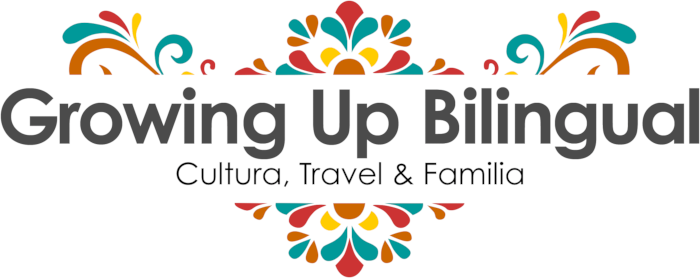The Latino population is growing fast in the U.S., and that means we need to think about how our healthcare system can best serve everyone. This brings us to an important point: “Why We Need More Latino Nurses?” Well, when we have more Latino nurses, patients can connect better with them. It’s not just about speaking the same language; it’s about really getting each other’s backgrounds, traditions, and feelings. This way, care becomes more personal, and patients feel more understood.
Nursing is a booming job right now in the U.S. Many people are becoming contract registered nurse because the job has good pay and lots of options. For example, nurses can work in hospitals, doctor’s offices, or help patients in their homes. Plus, being a nurse feels good! Many nurses say they love helping people and making a difference in their lives.
But as the number of Latino people grows in the U.S., we need more Latino nurses. This is where tools like home care scheduling software comes in handy as each nurse will know exactly who is on shift so it is easier to keep track of who is where and it also provides your staff somewhere safe to upload important care documents.
How Latino Nurses Are Making A Difference
Latinos account for 17% of the U.S. population, and by 2060 we will account for more than one quarter of the total, yet only 2% of nurses are Hispanic.[3] For me, this is something very personal, and I do not need to see the numbers to be aware of the importance of having more Latino nurses. I often have to accompany my mother-in-law to doctor’s appointments and translate as the nurses take her blood pressure or ask her questions about her health. Sometimes she will even drive to the next town if she finds a clinic or doctor’s office with Latino nurses and physicians. I had the opportunity to speak to various nurses and other healthcare professionals and they all agree that understanding the culture and specific needs of Latino patients are paramount for successful recovery from trauma or illness.
Lupi Nichols, an RN working at a hospital in Miami, lives this every day. “Many patients are relieved and excited when they realize I speak Spanish. Because we are in Miami, patients expect more people in the hospital to speak Spanish and they get very frustrated when they learn that I am the only Spanish-speaking nurse specialized in Lactation Consulting in the hospital,” says Nichols.
The Importance of Culture in Healthcare
But it’s not only about language; culture plays a very important role in healthcare. When it comes to interacting with healthcare providers, Latinos value and expect respect, warm personal interactions and understanding of the importance of family members taking part in their healthcare decisions. “Other nurses often come to me and ask me to deal with challenging patients, but most of the time it’s not that the patient is difficult; it’s just that there are cultural differences. As a Latina, I understand how our family’s support plays an important role when we have health issues, so when a new mother’s room is filled with cousins, grandparents and uncles I am sensitive to those needs, and when I have to ask them to be quiet or leave I do it from a place of understanding and affection and they are always happy to comply,” says Nichols.
Lisa Rodriguez is an RN at the Department of Neurology at a Miami hospital; she started out as a medical assistant and has been a nurse for 17 years. “If you are passionate about helping people, nursing is a very rewarding career, and now is a great time to become a nurse. There is always going to be work as a nurse,” she says. Doctors call Rodriguez so she can help explain treatment and diagnoses to Latino families. “It’s not just about translating; I help families understand the rationale behind the treatment and it feels good to know that I am helping them feel better about what is going on and about the choices they have for treatment.”
Having more Latino healthcare professionals who can provide culturally relevant and sensitive care can make a huge difference. Latinos are at particular risk for diabetes, tuberculosis, hypertension and other health-related problems, and many believe that the key to closing the gap and reducing those healthcare disparities lies in having a more diverse workforce. There is an immediate and urgent need for more Latino healthcare professionals, and there are a number of groups, organizations and employers that are looking to attract and recruit Latino nurses.
Nichols often encourages Latino nursing aides to study nursing, but she always gets the same answer: “They say that they would love to study nursing but they don’t have the time; they have kids at home and need a flexible schedule and an affordable option,” she says. “Many people do not realize that they can study nursing online.”
Be the Face of Change: Become a Role Model
I know from experience that there is nothing that feels better than helping others. Finding a career that you are passionate about and that gives you the tools to really make an impact, not only in a person’s life and the lives of their family members, but also improves the well-being of the Latino community in general, is truly priceless. What started out as an article about the importance and need for more Latino healthcare providers has now become more personal. As a Latina, I know it takes just one interaction with a nurse who understands, cares and “gets” my culture to change the way I look at healthcare in the United States and how proactive I am about taking care of my health and that of my family.
There are very few Latino role models in healthcare leadership positions, and the Latino community as a whole is looking to the new generation to make a change and become those role models. I hope that I can inspire Latinos to take a step toward making a career decision that will not only be fulfilling for them, but that will also positively impact the Latino community.
Other Articles About Great Career Paths for Latinx
- The Lack Of Latino Women In Technology Fields: The tech industry recognizes the gender gap, especially for Latinas, and is working to offer them better opportunities. Latinas play a significant role as tech consumers, and their cultural and linguistic insights are crucial for innovation. Imagine the possibilities, like a voice recognition program that gets Spanglish or apps that celebrate Latino heritage.
-
Tech Careers Latinos Can Excel At: By 2026, there will be an estimated 3 million computer science jobs in the US, but few will be filled by Latinos, even though these careers are high-paying and satisfying. Latinos are rapidly adopting new technologies and excel in tech usage. Their unique cultural and linguistic perspective makes them invaluable in the tech workforce, catering to the growing Hispanic market.




There should definitely be more bi lingual nurses in hospitals and doctors offices and even more in clinics where tests are taken. And it is not only Hispanic nurses that are needed–there are a lot of other ethnicities out there that could use translation help!
Being bilingual in the health care profession is certainly an asset. I agree that more nurses should be able to speak more than one language.
I hope the face of the industry does change and more Latino nurses enter the field. It would be wonderful!
Yes, it definitely would be wonderful to have a diversity in the health care field. It is sorely needed.
Que importante, y sobre la confianza que dan al hablar en nuestro idioma!
Excellent post. I shared on LinkedIn and twitter.
I just went through 2 years of serious health care and then home hospice with my mother and then my father.
We are not Latino, but my Mom was full blooded Italian-American and needed very similar compassion from the health care team. (Did not always get it, of course).
I agree so much with your post and am happy to share.
I think it is important to have diversity in every field, especially the health care fields. They have a cultural connections that they can make with their Latino patients.
I love this post and I couldn’t agree more. It is important to make sure that all patients have accurate information and a complete understanding of their treatment. Cultural sensitivity is crucial, we live in a very diverse country and it’s a beautiful thing.
I agree! I used to work with nurses in skilled nursing facilities and it was a shame not to see more latino nurses, especially in the heavily populated latino community where I was working.
Very interesting. I did not realize just how few Latino nurses I’ve come across now that you’ve mentioned it here. I think it would definitely needed in the healthcare field.
What a great topic. I can totally relate. When I go to the hospital or doctor’s office it makes me feel more at ease when I know the nurse speaks Spanish.
Es sumamente importante contar con enfermeras de vocación que sean bilingües porque cuando las personas están enfermas lo que más necesitan es sentirse protegidas y poder expresar lo que sienten.
Soy Enfermera graduada y colegiada en mi país, la enfermería es una hermosa profesión que me enseño a ser más disciplinada, humana y relacionarme mejor con las personas, estudie en una universidad católica y tenemos el lema “Cuidar al enfermo como lo hace una madre con su único hijo enfermo”, por todo eso la Enfermería me ha traído muchas satisfacciones personales y profesionales pero no me animo a retomar aquí en US, porque así como es una hermosa carrera y el contacto con las personas es lo que más me gusta también es muy sacrificada y cuando tuve a mi Pequeña me dí cuenta que las guardias nocturnas y el horario rotativo no era parte de lo que quería y empece a trabajar en colegios y otras instituciones durante el día, ahora estoy dedicada a mi Pequeña hija y también es una de las satisfacciones más grandes poder ver cada momento de su crecimiento y desarrollo, definitivamente en el mundo hacen falta muchas enfermeras pero con verdadera vocación de servicio, muchas gracias por la información, la comparto, saludos y
¡FELIZ DÍA!ॐ
http://mamaholistica.com
En temas de salud, prefiero alguien con el que pueda hablar y expresarme mejor, por lo que si hablan español es mucho más sencillo. Lo mismo ocurre con mi mamá, quién no habla inglés.
Dado que la población latina del país está creciendo tan rápidamente es esencial que haya proveedores de salud bilingues.
I would love to see more nurses in general. I think the concept is great with being bilingual, I couldn’t imagine when a pt comes in and is already in fear and unable to communicate – thanks for sharing